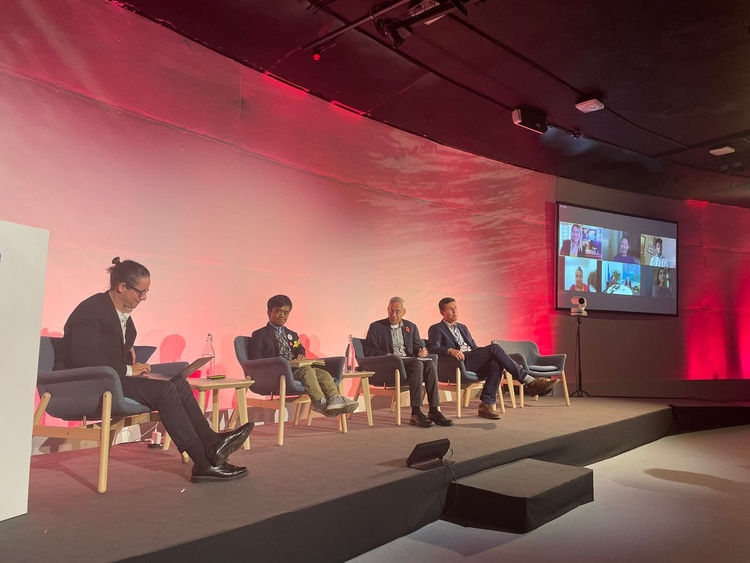Last week, Coalition member and SDG Champion Omnia el Omrani joined two different panels for the United Nations Climate Conference of the Parties (COP26). The first was for the Presidency Event titled accelerating the ZEV Transition: A One-Way Street held on 10 November and the next was with the Global Alliance: Cities 4 Children titled Our Climate, Our Future on 11 November.
Road safety interventions
During both interventions, Omnia highlighted how transportation connects with climate and how addressing mobility issues would also contribute to curbing climate change. Omnia also talked about the need to meaningfully engage with young people not just in terms of understanding the situation on the ground and addressing it long-term but also because they will be the most affected by the policies.
“As a young person who will be affected most by these policies, I call decision-makers to take action and make zero-emission vehicles the new normal” – Omnia el Omrani
During the panel, Omnia joined different mobility leaders as they talked about alternate modes of transport and more sustainable modes of fuel. Together, policymakers and transportation stakeholders are committed to fighting climate through more environment-friendly innovations.

Cities 4 Children: Our Climate, Our Future
During her panel with Cities 4 Children, Omnia joined different leaders to talk about climate especially its effects on communities, children, young people, and other sectors. The session highlighted how crucial city design is for public health, emphasizing its effects and benefits for children.
Speakers like Elizabeth Wathuti, founder of the Green Generation Initiative, talked about how children and young people are taking matters into their own hands to address the climate issue and fight problems like deforestation. “By planting a tree, children are saying ‘I will not be a victim’”

Omnia joined youth leaders Daniel Onyango, Ana Malia Falemaka, Umesh Balal Magar, Nomundari Urantulga, and Katrina Lisnichuk to emphasize how the current climate situation is affecting young people. More than this, they discussed interventions young people have made through different organizations to start addressing these concerns.
“You have to be the person who starts a revolution. We need more of our young people involved to make the change. Young people are not taken seriously.”
Different perspectives were discussed when it came to cities, climate, and stakeholder intervention. At the end of the session, the panelists and speakers were asked whether they were optimistic about the future of climate, urban development, mobility, and the rest of the issues covered. To which Tim Gill answered “hopeful”.

